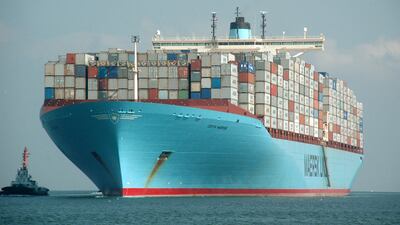Egypt released $300 million worth of goods from its ports last week, the majority of which had been held up for months due to a shortage of foreign currency.
Prime Minister Mostafa Madbouly said on Sunday that he made arrangements for the release of the goods after meeting some of the North African country's top supply, finance and commerce officials.
The goods predominantly comprised cooking oil, food such as meat and legumes, and animal feed.
Mr Madbouly said the government was working with the Central Bank on a plan to release the remainder of the goods still held at ports, but did not provide details on how they intend to accomplish this.
Priority will be given to food - as the country draws closer to the holy month of Ramadan when demand for foodstuffs typically rises - and raw materials needed to manufacture goods for export, he said.
In separate remarks, cabinet spokesman Nader Saad said goods worth $9.5 billion were held at ports as of Sunday, awaiting the securing of foreign currency required to release them.
Since the start of the Russia-Ukraine war, goods worth $14 billion have, at one time, been held at Egyptian ports due to government restrictions on imports to save foreign currency, he said.
Egypt’s foreign reserves hit record lows this year after the Ukraine conflict began, with $20 billion in foreign currency taken out of the state’s coffers.
Rising prices of food and energy around the world as a result of the war, among other things, have also contributed to the dwindling of the central bank's foreign reserves.
The shortage of foreign reserves needed to operate Egypt’s import-heavy economy has affected supply lines in almost every sector and resulted in a sharp increase in prices for the country's 104 million people, the majority of whom are poor.
The country's central bank raised interest rates by 3 per cent on Thursday, the fourth increase this year, in an effort to curb year-on-year inflation, which hit a five-year high of 18.7 per cent in November.
Two currency devaluations to make Egypt eligible for a loan from the IMF have also contributed to the sharp rise in prices.
The IMF approved a $3 billion support package for the North African nation earlier this month.
The approval of the 46-month loan is expected to bring about additional funding of about $14 billion, the Washington-based lender said.


